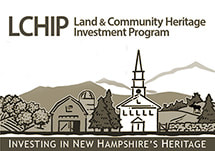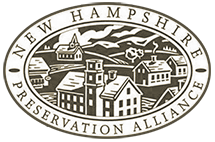Organization of Freemasonry
Freemasonry is the oldest fraternal organization for men in the world, and its organizational structure shows its age. The basic organizational unit of the fraternity is the lodge. We believe the term comes from the lodges (shelters) constructed at the building sites of cathedrals and castles during the Middle Ages. Masons worked and lived in these shelters.
Each lodge is headed by an officer called the "Worshipful Master." "Worshipful" means "highly respected" or "honored." The term comes from the judicial system of England and carries no religious implication. "Master" means "leader," or "best qualified," as in "Concert Master" or "Master Architect."
Each officer of a lodge has a title that originated during the Middle Ages. These titles may vary somewhat from state to state, but in general the officers and their contemporary equivalents are:
Each lodge is headed by an officer called the "Worshipful Master." "Worshipful" means "highly respected" or "honored." The term comes from the judicial system of England and carries no religious implication. "Master" means "leader," or "best qualified," as in "Concert Master" or "Master Architect."
Each officer of a lodge has a title that originated during the Middle Ages. These titles may vary somewhat from state to state, but in general the officers and their contemporary equivalents are:
Middle Ages Title |
Current Title |
Middle Ages Title |
Current Title |
Worshipful Master |
President |
Marshal |
Master of Ceremonies |
Senior Warden |
1st Vice President |
Deacon |
Messenger |
Junior Warden |
2nd Vice President |
Steward |
Page |
Treasurer |
Financial Officer |
Tiler |
Door Keeper |
Secretary |
Recorder |
Chaplain |
Chaplain |
Until 1717, each lodge of Masons was autonomous. On June 24, 1717, four of the lodges operating in London met together to form the first Grand Lodge of England. It became the first administrative or policy-making body of Freemasonry.
Masonic lodges still retain autonomy over their finances, activities, officer election, fundraising, and joining ceremonies. But administratively, each State or Province has a Grand Lodge which co-ordinates activities, serves as a central source of record keeping, and performs other administrative and policy functions for the fraternity. The state president is called the Grand Master of the Grand Lodge. He has broad powers in overseeing the progress of the fraternity and while there is no national spokesperson for the fraternity, within his own state (Jurisdiction) he is the chief spokesman.
Masonic lodges still retain autonomy over their finances, activities, officer election, fundraising, and joining ceremonies. But administratively, each State or Province has a Grand Lodge which co-ordinates activities, serves as a central source of record keeping, and performs other administrative and policy functions for the fraternity. The state president is called the Grand Master of the Grand Lodge. He has broad powers in overseeing the progress of the fraternity and while there is no national spokesperson for the fraternity, within his own state (Jurisdiction) he is the chief spokesman.
For more information, please contact:
Masonic Service Association Tel: (301) 476-7702 Toll-free: (855) 476-4010
3905 National Drive, Suite 280, Burtonsville, MD 20866
Masonic Service Association Tel: (301) 476-7702 Toll-free: (855) 476-4010
3905 National Drive, Suite 280, Burtonsville, MD 20866
|
This project was funded in part by a grant from the NH Preservation Alliance, which received support for its grants program from the New Hampshire Land and Community Heritage Investment Program (LCHIP).
|
Effingham Preservation Society is a 501(c)3 organization established in 1999 to preserve historic buildings and landmarks in Effingham, New Hampshire. The Preservation Society has agreed to be the Fiscal Agent of the Historic Town Hall Project.
|
TFollow THE HISTORIC TOWN HALL of Effingham, NH, on Facebook
Site Design by Harbour Light

